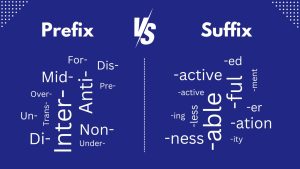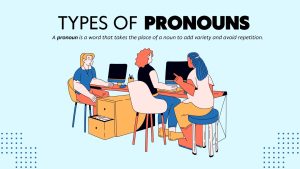Present Continuous Verbs
Present continuous verbs are all about actions happening right now. They show what someone or something is doing at this moment.

Present continuous verbs are all about actions happening right now. They show what someone or something is doing at this moment.

British and American English are like siblings from the same language family. They share a lot, but they also have their unique quirks.

Ordinal numbers tell us the order of things. Imagine you cross the finish line first, you’re in 1st place. That’s an ordinal number.

Gerunds end in “-ing” and act like nouns. For example, “Swimming is fun.” Infinitives are the basic form of a verb and start with “to”.

Comparative adjectives show the difference between two things (like faster). Superlative adjectives help us see who’s at the top or bottom.

Today, we explore sentence structures, which range from simple to compound-complex. Sentence structures come in four main types.

A prefix comes before the root of the word like the “un-” in “unhappy”. Suffixes go at the end like “playful,” where “-ful” goes at the end.

Quantifiers help us talk about how much of something we have. With uncountable nouns, like water, we use words like “much” and “some”.

Pronouns are like shortcuts in language, helping us avoid repeating nouns. They come in various types. Here are the 8 types of pronouns.

Conditional sentences follow a structure that combines a condition clause (using “if”). Learn the conditional types (zero, 1st, 2nd, and 3rd)